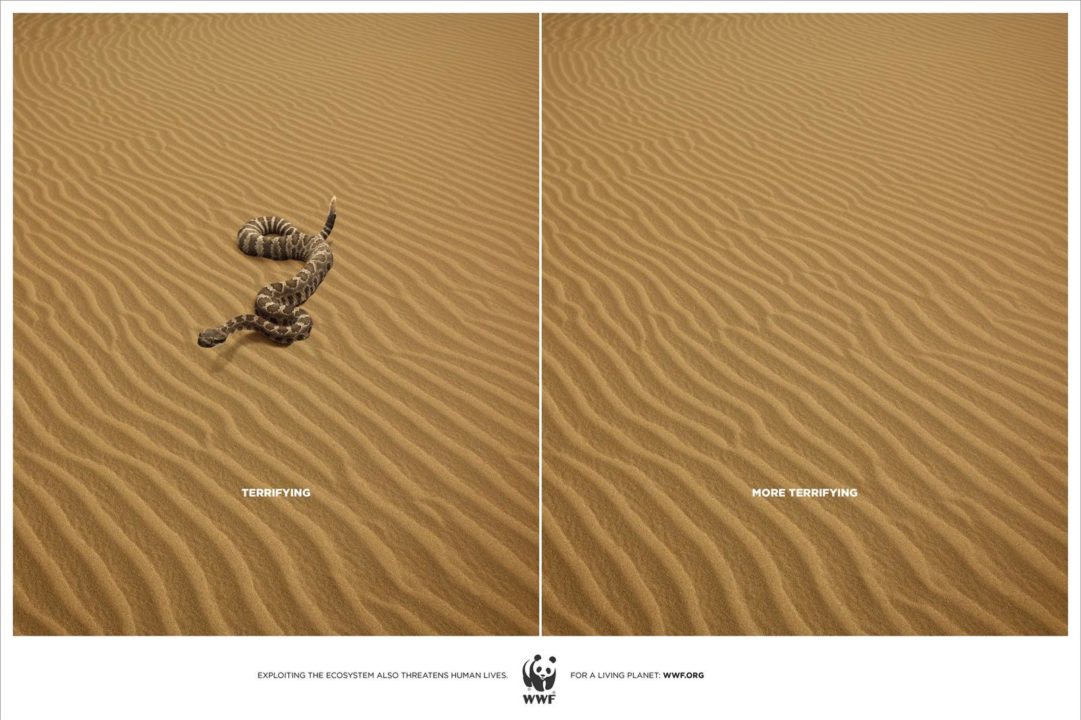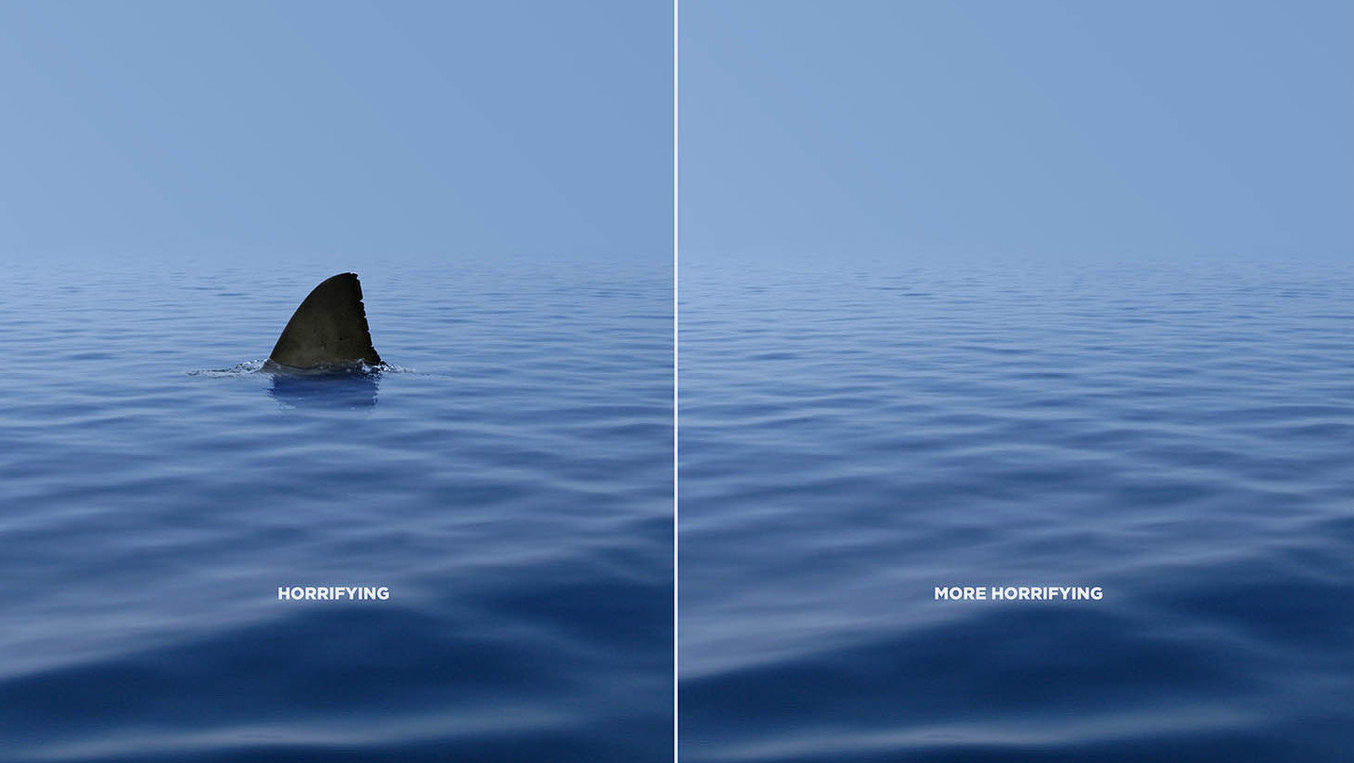Of the countless animal species of our ecosystem, some have been adopted and appreciated for centuries, while others have received our apathy, partly because they represent a threat to humankind. Go on a walk in the woods without bug repellent cream, and you will wish the immediate extinction of ticks and wasps. Would that be a benefit?

Counter-intuitively, rather than being a win, the extinction of even the most dangerous animals would be a disaster to some extinct. Eight years ago, World Wildlife Fund (WWF), an international non-governmental organization addressed this in an ad campaign calling people to keep ecosystems safe. They portrayed some animals commonly viewed as frightening and suggested that their disappearance would be even scarier. Their simple, but effective advertisement campaign captured a lot of attention and conveyed the message that every species is an integral part of the ecosystem; the absence of one would create an imbalance of unknown (and unmeasurable) magnitude. The photograph series included snakes, vultures, and sharks which are carelessly hunted because of their negative reputation.
Apart from WWF, other groups have been advocating for “harmful” animals to prove their indirect benefits and change our stereotype about them. For instance, scientists at the University College London are trying to rehabilitate the image of wasps, which are just as important as bees. Aside from their pollination role, wasps “eat the pests that devour our crops and the insects that spread disease” (CBC). Likewise, researchers have proven that sharks are far less dangerous than their typical depiction in movies. ”According to Oceana, of the nearly 500 species of sharks, only about a dozen are potentially dangerous to humans” (PBS). Others go further to say that we are a bigger threat to sharks than they are for us.
We can’t certainly pretend that all animals are harmless, but before pronouncing their extinction, remember that they exist for a reason.
Written by Kelly Jean, Class of 2021
Photo Credit: lvkjournal.tumblr.com

